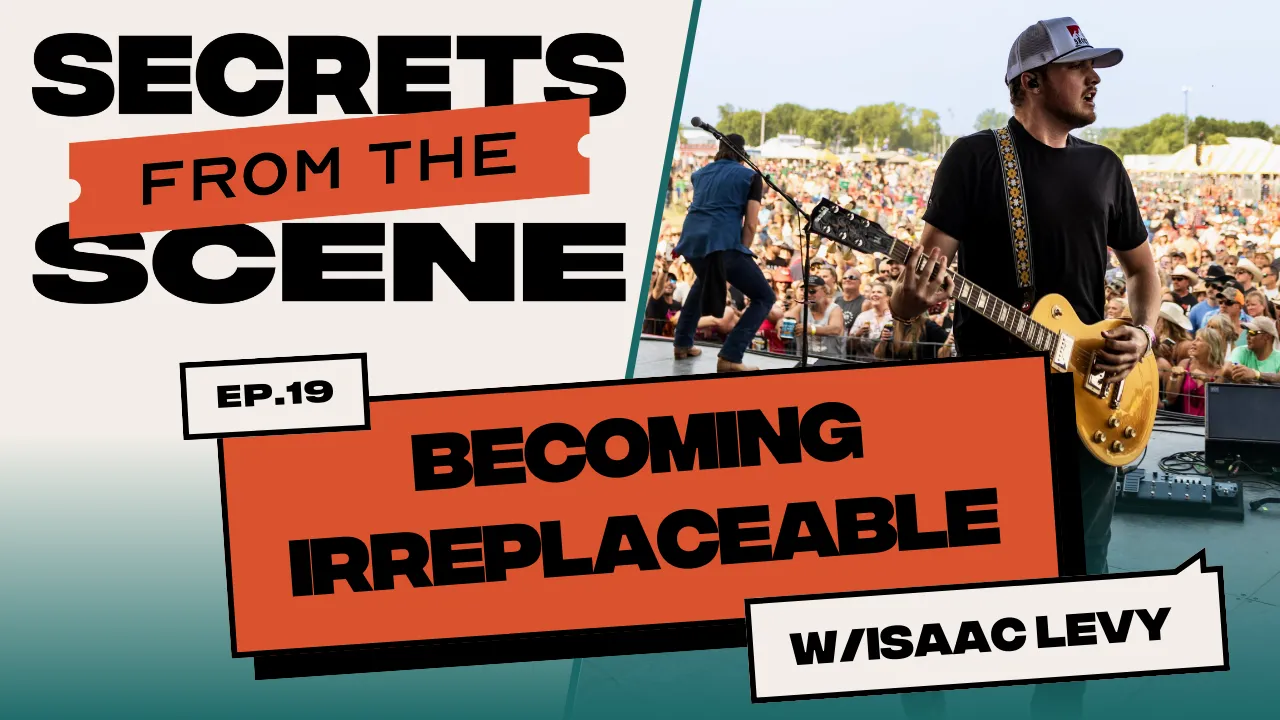Show Notes
Let’s be honest… It isn’t exactly hard to find a guitar player. It’s not even that hard to find an incredibly talented guitar player. But now try to find a great guitar player who can also handle musical director responsibilities, manage your in-ear monitor rig, and produce and play all the instruments on your record. That level of utility really starts to thin the herd.
Meet Isaac Levy, an immensely talented and hard-working jack-of-all-trades. Isaac has been following in his father’s footsteps (Noah Levy) and is making quite a name for himself in the Twin Cities music scene and beyond. His credits include working and playing with the likes of Ryan Lewis, Julia Cole, Chase Bryant, Jonah Marais, Michelle and Todd Rundgren, Greg Hawkes, Cory Wong, Yam Haus, Quinn Sullivan, and Grayson DeWolfe.
And perhaps the most impressive part? He’s only 21. So how has Isaac managed to accomplish so much, so quickly? His secret: He’s learned how to be irreplaceable.
In this episode, we discuss how to go the extra mile and over-deliver on expectations. We dive into the importance of adding value to everything you’re involved in, the power of self-teaching, staying curious, avoiding burnout, and more.
I am extremely impressed by Isaac, from his laundry list of talents and musical abilities to his down-to-earth demeanor and humble attitude. I loved our conversation, and I think you’ll find a lot of great insight as well. Enjoy!
watch now on YouTube:
Episode Links and Mentions
Connect with the Guest
Connect with Me
Give Feedback
📬 Send me a message: stephen@secretsfromthescene.com
💬 Suggest a guest or topic: podcast@secretsfromthescene.com
🎙️ Brought to you by:
--------------------------------
Thank You
This podcast is made possible by the hard work, expertise, and commitment of my team:
Max Greene and Joey Biehn. I'm forever grateful.
--------------------------------
Theme Music: "Thankful" Courtesy of LUEDVIG

